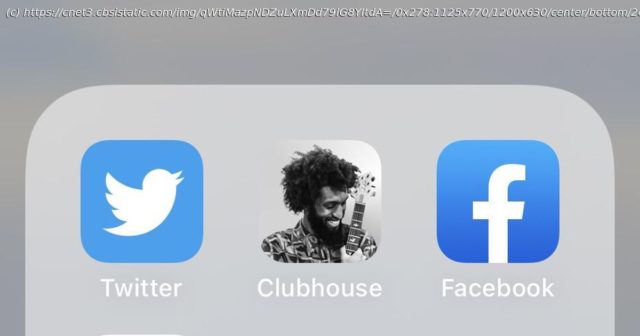On a Wednesday evening, there’s a room filled with a handful of people, talking about their plants. The ones they have, the ones they …
On a Wednesday evening, there’s a room filled with a handful of people, talking about their plants. The ones they have, the ones they want and the ones that’ve passed on to that big flower pot in the sky. «Someone gave me an aloe plant two weeks ago, and I’m already killing it,» one person says. «Welcome to the world of killing unkillable plants,» another responds. This room isn’t happening in defiance of pandemic best practices. After all, plant parents aren’t a notoriously rebellious crowd. It’s happening on a buzzy new app that launched this year, called Clubhouse. Clubhouse, which is still in beta and isn’t yet available to the public, was founded by Paul Davison and Rohan Seth. It’s an audio-based social platform. You can enter rooms (or create a room) and hear or participate in discussions on topics: how to pitch your startup idea, the future of marriage, whether Clubhouse is getting boring. Rooms generally have speakers, the way conference panels do, and moderators. The conversation is in real time, meaning you can hear folks throwing in their opinions about the subject at hand, and you can raise your hand to toss in yours as well. «Imagine if you were in class with everybody in the world,» said Natasha Scruggs, an attorney from Kansas City, Missouri, who’s been on the app for a couple of weeks. Clubhouse is the latest manifestation of our desire to connect to each other at a time when social distancing and remaining isolated at home is the new norm. But while videoconferencing services like Zoom have blown up for everyone, Clubhouse’s largest appeal is its exclusivity and ability to draw in notable figures. That hasn’t always been a good thing. Over the summer, Clubhouse garnered headlines for an incident with New York Times reporter Taylor Lorenz, which kicked off a debate over Silicon Valley culture and how the media covers it. It also brought light to the more serious issue of how the platform will handle harassment and questionable content, like conspiracy theories and anti-media sentiment, cropping up in conversations. The app has also garnered attention for the famous names who’ve popped in: Jared Leto, Tiffany Haddish and Ava DuVernay, to name a few. And with that has also come the type of juicy internet drama that people can’t help rubberneck, like Tom Hanks’ son Chet getting lambasted for his inexplicable proclivity for speaking Jamaican patois. To borrow a line from Hamilton, Clubhouse is getting to be the room where it happens. Clubhouse isn’t the first audio-based app. Even Twitter is playing around with letting users post audio clips in their feeds. Why Clubhouse, though, is experiencing the kind of attention it is could be for a mix of reasons, including the perceived exclusivity. «I don’t think this exclusivity thing was part of the design,» said Charlene Li, Altimeter founder and senior fellow.





![Działo się w poniedziałek. Oto najważniejsze wydarzenia [SKRÓT DNIA]](http://nhub.news/wp-content/uploads/2025/10/thumbdf2a55c33e4ef82cdd77d28611e91c40-100x75.jpeg)
